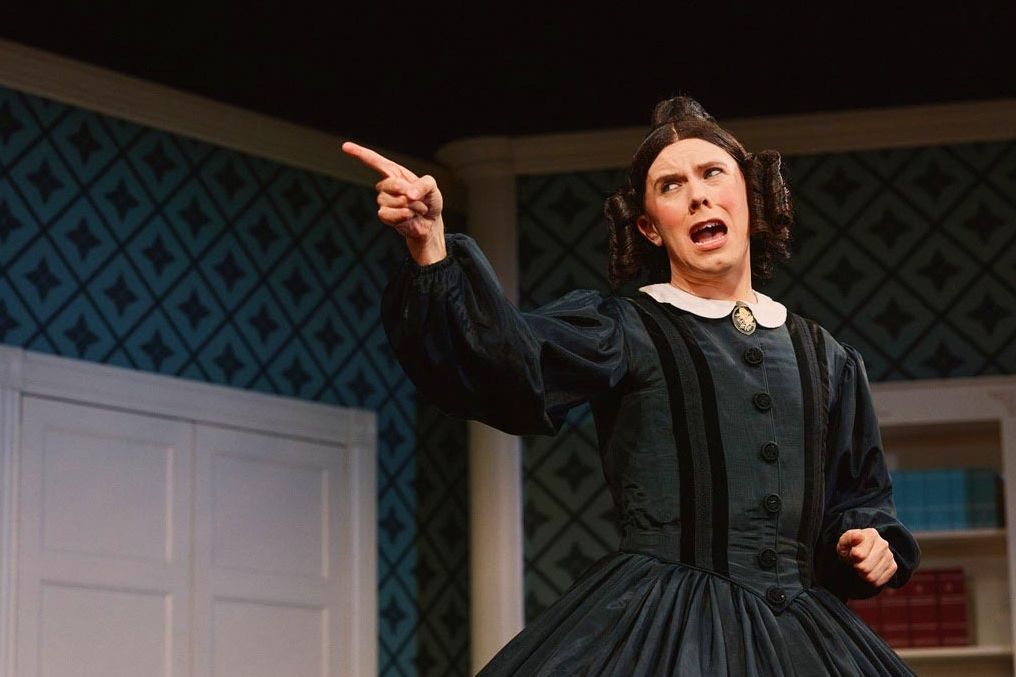Q&A: Artists Rep's New Artistic Director
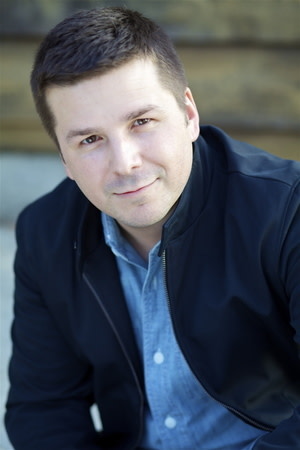
After seven months of highly guarded searching, interviews, and visits, the theater announced that Dámaso Rodriguez, an award-winning director from Los Angeles (he was just barely beat out of a national directors award by Oregon Shakespeare Festival Artistic Director Bill Rauch), would take over the helm. Having spent the last ten years in Los Angeles as the cofounder of the Furious Theatre Company and the associate artistic director of the Pasadena Playhouse, Rodriguez has been lauded by the likes of the Los Angeles Times with praise like: "Dámaso Rodriguez's relentlessly paced staging builds suspense with the visceral engagement of a cinematic thriller." He’ll start making regular visits in January, working in tandem with Nause; move to town in March for his directorial debut in April with Ten Chimneys; and fully take over the company in June. (For more about him and his announcement, see our initial post).
Rodriguez came to town yesterday for the company’s holiday party and was kind enough to sit down with Culturephile in ART’s light-flooded lobby to talk about his plans for the company, how his career stems from stupidly good luck attracting early major media attention, and how Portland should be on the national theater radar.
Culturephile: We don’t have time to cover your entire history, of course [and Marty Hughley did a pretty thorough job in the Oregonian], but share with us two moments or experiences that stand out as formative to you as a director?
Dámaso Rodriguez: After I graduated [from Texas A&M], I went to Chicago immediately. I got into the idea that 20-something young people could make plays and change the world, which is what happened with Group Theatre and Second City. We started producing our own improv show, the Furious, and the big idea was the full lights and sound would be improvised by the person on the board, which has been done a lot since, but at the time it was new. In that group was a guy who said, “I’m writing a play.” So we said, “you write a scene every week and we’ll produce it.” We booked a theater, and I co-directed with the writer, and we both acted, which I’ll never do again because it was dumb. There was nothing ground breaking about the play—it had a good ear for dialogue—but the Chicago Tribune came to see opening night and pegged it as recalling the early years of Steppenwolf Theatre. We sold out the entire six weeks. It was very encouraging, and my transition to identifying myself as a director stems from that.
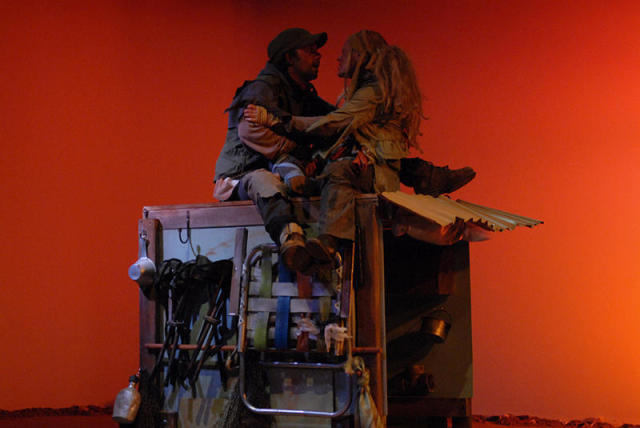
Grace. "Edgy, raucous and uncompromising with admirable clarity, director Dámaso Rodriguez steers his skilled cast through Wright's dense ruminations." —Los Angeles Times. Photo by Anthony Masters
Another turning point was, when we started Furious [in LA], we decided not to pay rent because a lot of other theaters, including most major theaters in major cities, aren’t paying rent. We decided to write letters to different municipalities in LA, and we got lucky. Within a few weeks, we found ourselves in a meeting in Pasadena with the director of the Armory Center for the Arts. They were renovating their space and temporarily using this warehouse, a 50,000-square-foot plastics factory. We were touring the space, and he said you can have from that pole to that pole. It was the shipping and receiving dock. So we ended up making a theater space in this warehouse. It was rave-y—all defined by black curtains that my wife sewed hung in a box, with couches. We announced three shows, announced the space, and then announced the first show as the American premiere of the South African playwright Paul Slabolepszy. All that triggered the attention of the LA Times, which typically won’t review a start up company for years. It was one of those pieces where the writer hung out for multiple visits, and it came out in the Sunday before we opened, before we’d ever even been reviewed. Over the years, we’ve done 25 shows, but if that hadn’t happened, Pasadena wouldn’t have been aware of us. The Pasadena Playhouse invited us into its second space and said do four years of counter programming.
Then in 2007, I got asked to be the associate director of the Pasadena Playhouse because I was on campus, and those two things combined is why I’m here.
How familiar were you with the Portland theater scene before applying for this job?
I was not very familiar with it. I knew about Portland Center Stage, and I became more aware of Oregon with Bill Rauch going to OSF [Oregon Shakespeare Festival in Ashland]. But I dug into the rest of the scene, and I was blown away with the speed that new plays are getting done here. It's not like the larger theaters can take their time getting to that cool new writer. If Center Stage or Artists Rep doesn’t pounce on a new writer, one of the really cool companies started in the last few years will. I’m really impressed with the scene. I don’t understand why Portland isn’t getting it’s own link on the national theater websites.
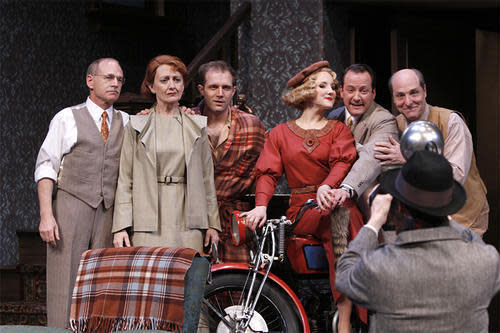
Paradise Lost. “'Paradise Lost' is a fascinating, pulsating slab of theatrical history in Intiman Theatre's gutsy, vigorously performed resurrection.” –The Seattle Times. Photo by Chris Bennion.
What excited you about working for Artists Rep?
I like that there is this long history of an audience that wants provocative new work. I’ve not only spent a long time in Pasadena Playhouse, but I’ve freelanced, and I know larger organizations really struggle with risk taking. But I’ve always been after that kind of work. It’s on the t-shirt here: “It’s provocative.”
Then, walking into this space was really powerful. Walking through that door, this feeling, it reminded me of my favorite theaters. The fact that, as Artists Rep grew, it didn’t choose to become a 400 or 500 seat theater; it chose to become two substantial but relatively intimate theaters, and that allows them to take risks. I know artistic directors around the country who are running physically larger spaces who have lists of plays that they love but don’t feel they can do because it’d be financially catastrophic to risk alienating part of the audience base. The fact that this is a company where I can do the work I want to do is what it’s about.
You’re going to be taking the reins from a beloved director who’s been steering the company for 25 years. Do you find that intimidating?
Sure, if you focus on failing at it. I would say that through the process of getting to know Allen, his personality, his care for the future of the company—he wanted to do it in the right way at the right time. We’re going to overlap for six months, day to day. I can see how that could be challenging and awkward—except that it’s Allen. I’m excited to have him around. I’ll spend the first part really watching. I’ve figured out that he’s beloved, but the fact that he’s been supportive of me is the most empowering thing.
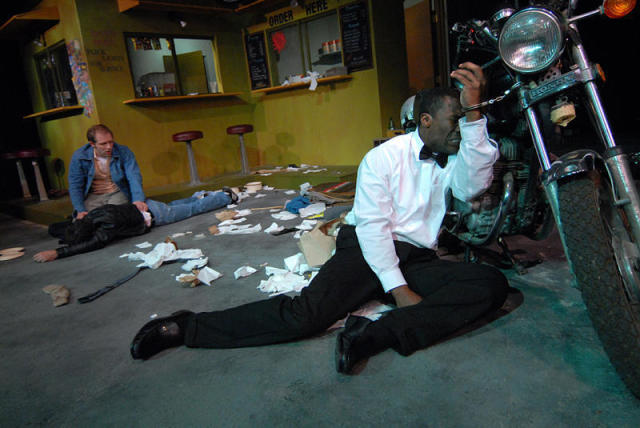
Canned Peaches in Syrup. "Director Dámaso Rodriguez's incisive world-premiere rendition is a bold and thrillingly theatrical exploration of Jones' intriguing themes. " –Back Stage. Photo by Anthony Masters
What do you see as your mission as artistic director? Where do you want to take the company?
I want to go further with the mission. Artists Rep has grown physically, they’ve become a producer of new work, we’ve got the commission this year and world premieres for the last 10 years. They’ve been doing it already, but I want to make it part of the brand of the theater nationally.
More concrete programs and processes for that: I want to make this company known as an ensemble company for all the artists. Not just the actors, but designers, writers, directors. This is “Artists Rep,” and I can’t help but apply an apostrophe after “Artists’.” It’s an idealistic place for artists to do theater, because of the venue, the community, and hopefully the process.
I think historically the best in new writing typically comes when a writer is associated with a group of actors and starts to write to the strengths of that company. Of course there’s Shakespeare, but also places like Group Theater and Royal Court.
These two spaces, it’s only the beginning of their utilization. There’s a lot of practical things. One space is dark while the other is open much too often. A real goal is for the downstairs and upstairs lobbies to be buzzing with people who are wondering what the other audience is seeing and talking about. So more programming, which is not just finding the budget to produce more plays, but doing partnerships, co-productions, and residencies.
I feel really lucky coming here on the other side of getting settled into this space, the capital campaigns, and weathering the economic climate of the last four years.
Speaking of: how is the company’s financial footing?
It’s solid. It operates in the black, and not a lot of theaters can boast that. But I want to get to a more stable place—things like endowments and truly owning the building. That’s another reason I’m here: I know that so many theaters that look healthy if you judge them by production values may be running really exhausting and mounting deficits, and this theater’s not doing that.
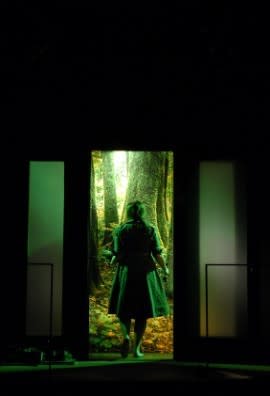
Hunter Gatherers. "Dámaso Rodriguez's relentlessly paced staging builds suspense with the visceral engagement of a cinematic thriller and draws nicely realized characters from the entire cast." -Los Angeles Times. Photo by Anthony Masters.
Do you have specific plays or programs in mind?
I can’t say. We’re about to have our first real talk about that right now. It will be planned by Allen and I. I have to see where we stand on rights. It’s too early to say, but it’s going to come fast because we’re going to know everything hopefully by March.
You talked about directors having lists. What’s at the top of your list of the shows you want to do?
I’m not going to name any new plays. Someone taught me not to talk about titles until you have rights. But I have been carrying around a concept for The Skin of our Teeth by Thornton Wilder, which is in the category of a massive play nobody can afford to do. I want to do Tennessee William’s Not About Nightingales, which is another big show, but almost never done and impossible to do. I want to figure out how can the advantages of these smaller spaces allow this company to solve a problem that the bigger theaters haven’t been able to solve. How can this mid-size resurrect some plays that can’t be done for financial reasons?
To what extent will you focus on nurturing local playwrights and premieres versus non-Portland playwrights?
I don’t see mostly one or the other. I want to get to know the artists who are here across the board, and it’ll be a goal that a large percentage of the new work we develop is local writers and writers in the company.
But I think it’s just as valuable to bring writers and other artists from outside of Portland. I think these kinds of spaces are the future model for new work in general. My hope is that we have writers outside of this particular community or region that want the chance to nurture their work here. If people aren’t mixing together, we miss out on an opportunity. The power of a new player coming in and interacting with a team that knows a culture and how things work—this new outside person wants to get up to the speed with the veterans, but they also sometimes shakes things up.
My model in having a company like Furious is that every show has to have enough representation from the company to feel like a Furious production. There’s got to be a certain number of people who make it feel like an Artists Rep show. Then someone comes in and shakes up that space.
One reason I want to bring in other directors is maybe I’ll stop seeing the space with new eyes. Then they come in and make me see it differently. I think that’s essential. This theater is about local artists working here together. I keep coming back to the name of company.
Outside directors, you say. Do you have goal of how many per season?
I know that I’m going to direct two to three shows. That’s how the job was presented, and that’s about right. It’s hard to be the artistic director from the rehearsal room.
I’m not in a rush to designate an associate artistic director. It’s going to come from relationship built over time.
Any closing thoughts?
I hope I spoke to this: I think this theater deserves a bigger national presence than it has, based on what it’s accomplished. It’s really amazing; it’s one of the great regional theater stories of starting a company from something very little and building it significantly. I want to build a profile, and one of the ways is getting people who don’t live here working here and telling people how amazing it is. But I also don’t want to imply that I’m not first and foremost dedicated to the players here.


